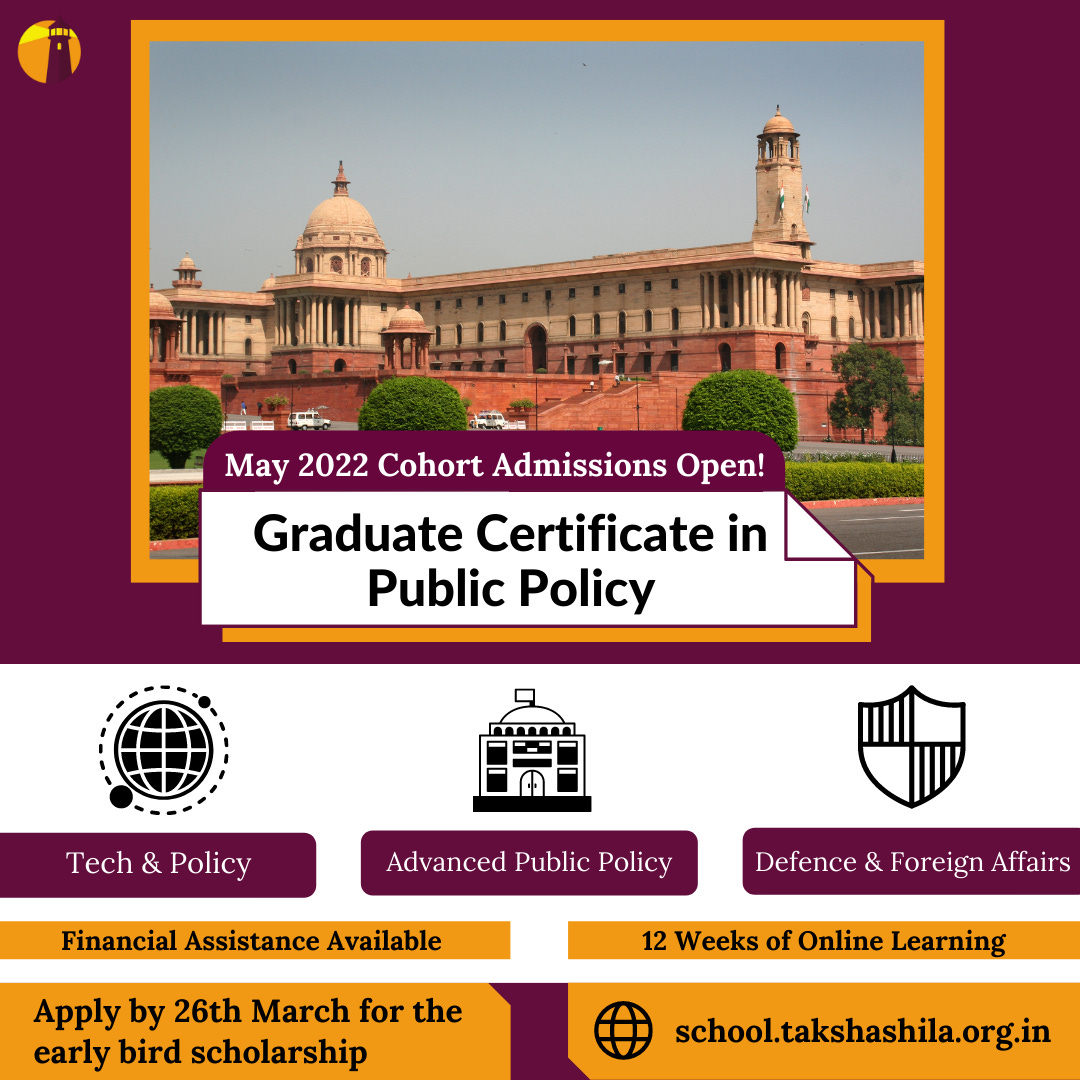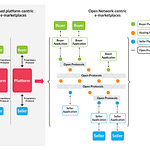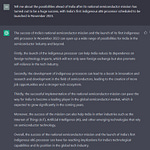Antariksh Matters: Let’s Not Destroy Satellites in Peacetime
— Aditya Ramanathan
Is it in India’s interests to support a ban on destructive anti-satellite tests? It’s a question Delhi may have to find an answer to in the near future. The trigger for this question is Russia’s ASAT missile test on 15 November 2021. The broader context is a series of moves that could eventually lead to substantial talks on space security.
On 15 November, Russia apparently used an A-235 PL-19 “Nudol” Anti Ballistic Missile Interceptor to destroy a defunct Celina-D electronic intelligence satellite at an altitude of 480 kilometres. The collision unleashed 1,500 pieces of debris that could potentially threaten both satellites and inhabited craft such as the International Space Station and the Chinese space station Tiangong.
A little over a month after the test, the UN General Assembly passed resolution 76/231 on 24 December, committing itself to convening an open-ended working group that will meet multiple times through 2022 and 2023 to discuss ways to reduce threats in space “through norms, rules and principles of responsible behaviours”. While the working group is likely to consider a range of space-related matters, destructive ASAT missile tests are likely to figure prominently. Partly this is because the resumption of destructive ASAT missile testing since 2007 has created growing concern about space debris. The other reason is that the idea of a ban on destructive tests appears to be gaining ground. A number of prominent authorities on space are calling for a ban. These include Takshashila’s own director, Nitin Pai, as well as scholars from the US-based Secure World Foundation (SWF), a researcher at the Stockholm International Peace Research Institute (SIPRI), and academics.
The Return of ASAT Missiles
During the Cold War, the USSR and the US considered banning ASAT missiles entirely as a class of weapons. These efforts culminated in negotiations in 1978-79 that eventually failed as both states prioritized nuclear arms control and as their relations began to sour over the Soviet invasion of Afghanistan. However, from December 1985, the US and the USSR effectively upheld a voluntary moratorium on destructive tests.
The moratorium was shattered on 11 January 2007 by the most destructive kinetic ASAT test in history. On that day, China struck one of its own satellites with an SC-19 missile at an altitude of 865 kilometres. The test left behind at least 3,000 pieces of tracked debris along with perhaps 32,000 pieces of untracked flotsam. In 2008, an American sea-based SM-3 ballistic missile interceptor struck a malfunctioning satellite at an altitude of 370 kilometres. In 2019, an Indian Prithvi Delivery Vehicle Mark-II was tested against a target satellite at an altitude of 282 kilometres. This was followed, most recently, by the Russian test.
While states have also continued to carry out both non-destructive tests of ASAT weapons and tests of missile interceptors, it is the destructive ASAT tests that have sparked the greatest concern because of the dangerous debris they generate.
The Case for a Ban
The upside of a ban is easy to see. Orbital debris from such tests can pose a serious threat to satellites and space stations, especially those in low Earth orbit (LEO). By eliminating this source of debris, spacefaring states make the-already crowded orbits safer for themselves and others. The second (and more uncertain) advantage of a ban is that it could slow down other states pursuing direct ascent ASAT capabilities. However, this advantage is, at best, notional, since ballistic missile defence systems capable of high altitude interceptions, can be easily repurposed into direct ascent ASAT missiles.
The potential downside of a ban is that it might affect the development of India’s own ASAT capabilities. This downside is also more notional than real: having already unambiguously demonstrated its ability to intercept and destroy a satellite in LEO, India has no real need to perform destructive tests. While DRDO may consider it necessary to conduct more tests to validate India’s direct-ascent ASAT capabilities, these do not require actual kinetic interception. Indeed, the challenge of intercepting a long-range ballistic missile is far more challenging than that of intercepting an LEO satellite on a known trajectory.
What about intercepting satellites at higher altitudes? Here, the limitations of kinetic ASAT weapons become evident. For one, striking satellites in high Earth orbit (HEO) requires purpose-built missiles of much greater range. Furthermore, such missiles would take so long to reach their targets that it would make it much easier for the adversary to take evasive action. Finally, creating debris fields at such altitudes would cause much greater and indiscriminate destruction, endangering India’s own satellites. At higher altitudes, India, like many other states, would be better off employing electromagnetic radiation to disrupt or destroy satellites.
In summary, a ban on destructive testing would not constrain India’s own ASAT capabilities and would make the orbits safer for everyone’s satellites. Such a ban is also a low-hanging fruit that could open the door for further negotiations with other states on specific space weapons and space operations more generally. India would do well to unambiguously support a ban on destructive tests.
If you enjoy the contents of this newsletter, please consider signing up for Takshashila’s Graduate Certificate in Public Policy(GCPP) Programmes.
Click here to know more
Cyberpolitik: Deplatforming or Unplatforming a country
— Prateek Waghre
Ukraine’s appeals
Ukraine’s Vice Prime Minister and Minister of Digital Transformation Mykhailo Fedorov’s Twitter account has made appeals to various technology companies to act against Russia by stopping services, providing information, etc. I’ve compiled some of these in a work-in-progress mega note about internet and information ecosystem governance-related aspects of this situation [SochMuch].
Another set of significant appeals was made through letters to ICANN and RIPE NCC to [Pastebin, via Internet Governance Project]:
Revoke, permanently or temporarily, the domains “.ru”, “.рф” and “.su”. This list is not exhaustive and may also include other domains issued in the Russian Federation.
Contribute to the revoking for SSL certificates for the abovementioned domains.
Shut down DNS root servers situated in the Russian Federation
(to RIPE NCC) Withdraw the right to use all IPv4 and IPv6 addresses by all Russian members of RIPE NCC (LIRs - Local Internet Registries), and to block the DNS root servers that it is operating.
The European Union, for its part, called for an EU-wide ban on Russian state media and announced that it was building tools the block their disinformation in Europe [Politico.EU]. However, there were questions around whether it was legally allowed to do so.
We’ll get to some responses, but it is worth noting that these appeals cover large swathes of the internet stack from social media platforms, web services, IP intelligence services, CRM services to Internet Registries. And if you look at the dates, there is something of a pattern here. The appeals start at the user-facing end of the stack and then extend to the more infrastructural parts of it. Now, Ukraine is well within its right to make the appeals it thinks will protect its interests. How other countries, private corporations and people, in general, respond will set some precedents.
Company Responses
Since this is a developing space, I will not try to put down a comprehensive list, but the following resources should give you a sense (note that this is mainly for technology companies):
A long thread by Anna Rogers.
RestofWorld’s compilation (which does not look like it has been updated for a few days).
Techmeme filtered for Russia and Ukraine (utility may drop as the news cycle shifts).
Social media platforms started off with limiting ads/monetisation capabilities, more labelling/fact-checking - and, in response to the EU’s calls, restricted Russian state media in Europe. However, evelyn douek is right when she says there seems to be no normative framework. In this instance, social media platforms may have done what many wanted, and a number of interests aligned, as Rasmus Kleis Nielsen stated. But that doesn’t take away from the reality that these actions were arbitrary (note, I am not arguing at this stage, whether they were necessary or not).
And as Mike Masnick points out - it won’t always be this way. Because precedent is wielded by whoever thinks they can take advantage of it.
Or, if you assume that bad-faith actors will do certain things anyway (which is not an unreasonable assumption, to be fair), then also consider that they will use said precedent as a pretext or justification or weave it into their whataboutery. As Ben Thompson noted [Stratechery (potential paywall)]:
Given this, Facebook being available in Russia seems like a net win, and, by the way, I would question exactly what effect banning Russian state media in the E.U. will actually have on this conflict; it seems clear that Russia is losing the battle of public opinion to a degree that no number of pro-Russia articles could undo. It doesn’t matter either way in the short term, but I do worry about the long-term: if Facebook is clearly following the government’s lead in the E.U., it is going to be difficult to see how the company stands up to other governments in the future, even if their requests are more problematic to the readers of this newsletter.
Note that not all technology companies acted in response to direct appeals from Ukraine or demands/pressure from EU countries. Many acted of their own accord to stop operations, sales, software updates, close offices, etc., in Russia.
Hammers and Splinters
One aspect common to Ukraine’s appeals and actions that were taken by various technology companies is that they move in the direction of effectively deplatforming Russia and Russia-based users. And while I can’t speak to the complete nature of support/opposition for the war against Ukraine among large sections of the Russian population and whether that should serve as justification for attempts to ‘cease the means of communication’ - one has to wonder about the long term ramifications of such actions.
Mahsa Alimardani recounts that it can be counterproductive based on the Iranian experience. The unintended consequences of such actions are, in the short term, leaving domestic populations at the risk of greater control, exposure to lower quality information and propaganda, resulting in further isolation. And in the medium-long term, further splintering (perhaps even accelerating) of the internet as many sovereign states will want to avoid being in a similar situation. And this may not stay limited to the realm of the internet but extend to any ‘foreign’ firms.
Some take solace in the fact that the internet, as we know it, today does not understand international boundaries. I would caution that it does not mean it never will. Here’s an extract from a conversation between Cloudflare’s CEO Mathew Prince and Ben Thompson [Stratechery (paywall)]
Right. But given the nature of the internet, isn’t that the whole problem? Because, anyone in Germany can go to any website outside of Germany.
MP: That’s the way it used to be, I’m not sure that’s going to be the way it’s going to be in the future. Because, there’s a lot of atoms under all these bits and there’s an ISP somewhere, or there’s a network provider somewhere that’s controlling how that flows and so I think that, that we have to follow the law in all the places that are around the world and then we have to hold governments responsible to the rule of law, which is transparency, consistency, accountability. And so, it’s not okay to just say something disappears from the internet, but it is okay to say due to German law it disappeared from the internet. And if you don’t like it, here’s who you complain to, or here’s who you kick out of office so you do whatever you do. And if we can hold that, we can let every country have their own rules inside of that, I think that’s what keeps us from slipping to the lowest common denominator
Unplatforming
Let’s look at the Russian Government’s response in this limited context (over the last 5-6 days):
It has throttled and reportedly blocked the likes of Facebook and Twitter as well as the websites of many western news outlets. There are also question marks over whether it will try to disconnect itself from the internet. As per Oleg Shakirov, that does not appear to be the plan as of now (stress on the as of now).
It has updated its criminal code to add a possible 15-year prison term for spreading ‘fake news’ [Reuters].
Lawmakers passed amendments to the criminal code making the spread of "fake" information an offence punishable with fines or jail terms. They also imposed fines for public calls for sanctions against Russia.
"If the fakes lead to serious consequences then imprisonment of up to 15 years threatens," the lower house of parliament, known as the Duma in Russian, said in a statement.
In response to these changes, TikTok restricted live streams and new videos in Russia [BBC] and news outlets such as BBC, CNN, Bloomberg have suspended reporting from the country [Hindustan Times].
There is a possibility that the Russian government may ‘unplatform’ itself and its citizens from the global internet before it gets deplatformed.
An India-related subplot (but not the one you think, i.e. the U.N. votes)
In a December 2021 edition of The Information Ecologist (54: Committee Reports), I was critical of certain aspects of the Parliamentary Standing Committee on Communications and Information Technology reports on:
There were suggestions to explore “banning of selective services, such as Facebook, WhatsApp, Telegram, etc.” in Report 1, and “develop some legal provisions to counter as big a challenge as fake news” in Report 2. Russia’s own anti-disinformation law, when passed in 2019, included a provision for a 15-day prison term in case of repeated offences [The Moscow Times].
The Russian Government’s actions over the last few months and recent responses tell us that once you have a hammer…
Basically, be careful which hammer you give to whom. This also holds for the EU’s as-yet-unspecified plans for ‘anti-disinformation’ tools.
Cyberpolitik #2 : The conflicts question for DCNs
— Sapni G K
This is adapted from Sapni’s OpEd in the Hindu. Read the full piece here.
Through the previous editions of this newsletter, we have discussed DCNs at length. Per our definition, social media platforms such as Facebook, Instagram, Twitter, etc., are examples of DCNs. As we study this space, the evolving conflict in the Russian aggression towards Ukraine raises more significant questions around DCNs. This time, predominantly civilian technology has become a realm of geopolitical show of power, as against the earlier instances where military power and natural resources were the most intertwined with conflict. In the absence of norms around how social media platforms should function as a technology and how these corporations should act, we continue to be a gray area.
The challenges specific to the case now are not new. Armed conflicts within and between states have played out in cyberspace for years. It is no surprise then to see the same dynamics play out on social media platforms. The world outside Europe and North America has seen more than its share of conflicts, materialising and exacerbating the troubles of kinetic conflict through cyberspace. Social media platforms have gone by the mantra of “tech neutrality” to avoid taking decisions that may be considered political for too long. The years that have passed have seen an active ignoring of the concerns around social media platforms during a conflict. The lack of clear systems within social media companies that claim to connect the world is appalling. It is time that they should have learned from multiple instances, as recent as the Israeli use of force in Palestine.
There was no unpredictability over conflicts in the information age spilling over to social media platforms. It did not even require pre-emption, since these have been recurrent events in the past decade. The international community and the liberal world order had to be proactive but failed to do so. We have missed the chance to have established a clear protocol on balancing the business interests of social media platforms and their intersection with global public life in critical situations. Though late, it would be valuable to have insights and clear frameworks to guide the behaviour of states and these corporations in cases of conflict, which will inevitably spill over to social media platforms in today’s information age.
This space appears to be one where India could pursue a diplomatic course. Once these tensions abate, India could initiate conversations on setting norms on responses by social media platforms while conflicts are underway. It would be an opportunity to regain some of India's lost currency in the global order by attempting to establish a rule-based system in a fairly gray area. It is in our national interest and that of a rule-based global polity that social media platforms be dealt with more attention across spheres than with a range of reactionary measures addressing immediate concerns alone.
Our Reading Menu
[Opinion] The role of space in the Russia-Ukraine War by Aditya Pareek who is also a contributor to this Newsletter
[Opinion] Ukraine war is bound to affect India's space programme by Aditya Ramanathan who is also a contributor to this Newsletter
[Opinion] Ukraine War Won’t Affect Global Semiconductor Supply, But Will Hit Russia Hard by Arjun Gargeyas and Aditya Pareek who are contributors to this Newsletter
[Opinion] In conflict, a ‘settings change’ for social media by Sapni G K who is also a contributor to this Newsletter










